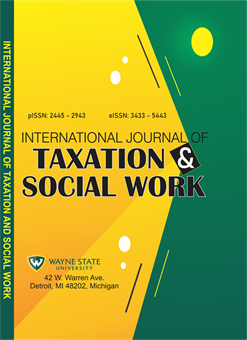INTERNATIONAL JOURNAL OF TAXATION AND SOCIAL WORK (IJTSW)
Tourism Governance in Cameroon and the Challenges of Modernity: An Overview
E-ISSN: 3433-5443
P-ISSN: 2445-2943
DOI: https://iigdpublishers.com/article/288
This article looks at tourism governance in the light of the challenges of modernity. It is set against a rapidly changing global backdrop. In a world where today's realities are rapidly being overtaken by tomorrow's hazards, where modernity is replacing the classical. As tourism is part and parcel of this world of multiple uncertainties, the problem arises of how to adapt. So, looking at the case of Cameroon, we asked ourselves what kind of tourism governance is needed to meet the new challenges of modernity? The method we chose to answer this question was a documentary analysis, based on a review of the literature on the subject. The synthesis of the contributions consulted leads us to believe that a multi-stakeholder approach to tourism governance (public and private, central and local) would be better suited to meeting the challenges of modernity.
Dorothee Tsogo Akoa & Marie Pierrette Nnomo
Allias-Denis, H., & Baroin, B. (2016). L’innovation dans le tourisme : Diagnostic perspectives.
Ministère de l’économie et des industries du numérique. France.
Bagnasco, a., & le Galès, P. (1997). Les villes européennes comme société et comme acteur, in Villes en Europe (La Découverte). La Découverte.
Banengaï-Koyama, T.-C., Ongono, P., & Ekom, T. (2021). Stabilité politique, qualité des institutions et tourisme en Afrique. Mondes du Tourisme, 19.
https://journals.openedition.org/tourisme/3683
Bendix, R. (2002). Capitalizing on memories past, present, and future : Observations on the
intertwining of tourism and narration. Anthropological Theory, 2(4), 469-487.
https://doi.org/10.1177/14634990260620567
Berger. (1982). La modernité psychohistorique (Persée).
